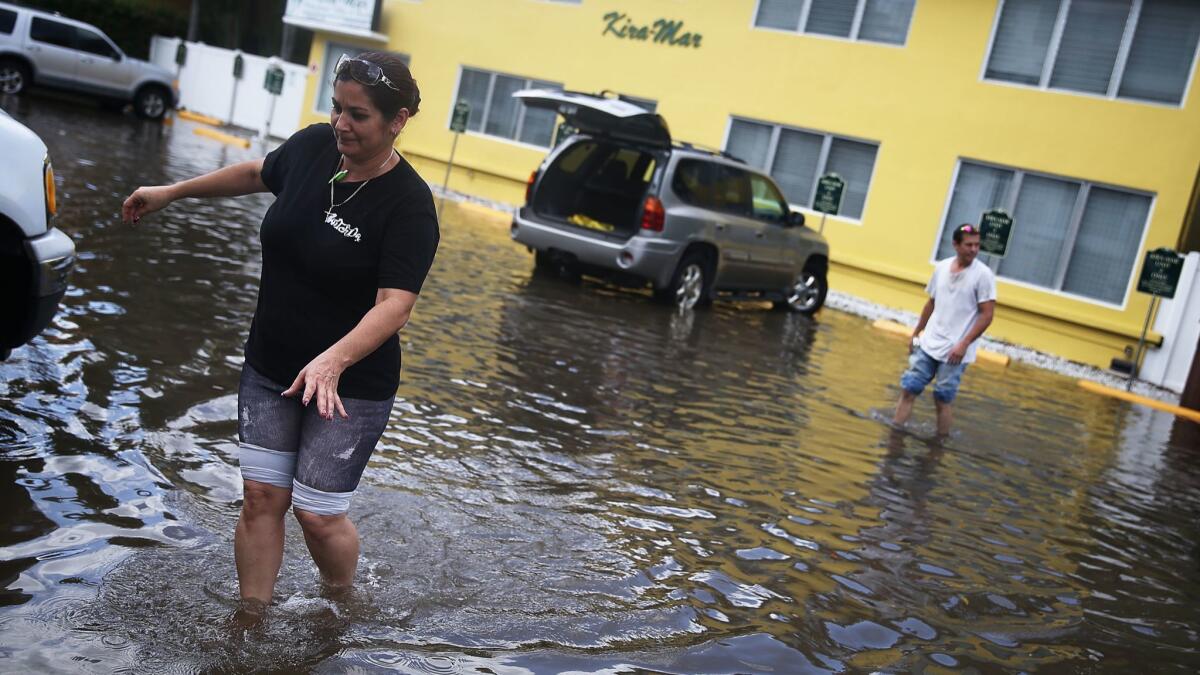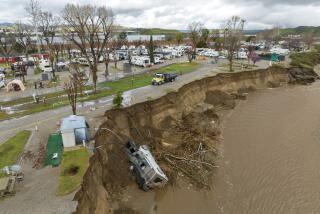Opinion: Climate change is hurting coastal real estate values. Oh, we’re losing ocean fish, too

Funny thing about climate change — it’s unrolling before our very eyes, despite claims by the president and others that either a) it’s not happening or b) global warming is a natural thing disconnected from the kazillions of tons of carbon dioxide and other greenhouse gases we the world have spewed into the air since 1850.
Now for the details.
Earlier this week, the First Street Foundation, a nonprofit working to draw attention to the flood impacts of climate change, added New England to its interactive database of coastal regions endangered by rising seas. The database shows which lots could be flooded in the event of a tidal surge or a hurricane, as well as the gains in property value forgone because of increased flood risk. Unfortunately for Californians, the maps so far are limited to the East Coast, but we’ve already seen the future in some of our low-lying areas.
The effects are significant. First Street estimates that increased flooding from high tides and rising seas — not storm surges or rain-fed floods — has cut the growth in coastal real estate values over the last dozen years by $14.5 billion from New Jersey north through the Maine coast. And that doesn’t include the damage to coastal properties, just the drag on property values.
You’d think this would be a time at which political leaders would rise to the occasion.
The organization estimates that more prevalent ocean flooding — it’s up to four times more frequent in some places than it was a decade ago — has cost $15.8 billion in lost home-value increase from Maine to Mississippi. Those losses reflect First Foundation’s estimate of how much more slowly the market value of coastal property grew in areas hit by more floods than in areas not affected by flooding.
And as the ocean level continues to rise, those market effects will also rise, and expand, in another real-world consequence of our reliance on fossil fuel for energy.
The second development: a new report in Science that finds warming oceans have reduced the amount of fish humans can sustainably rely on for food by more than 4%, or 1.4 million metric tons, from 1930 to 2010. Some species of fish also have moved to new areas of the ocean, affecting the communities that relied on them for sustenance.
Enter the Fray: First takes on the news of the minute »
“This is going to be one of those groundbreaking studies that gets cited over and over again,” Trevor Branch, a University of Washington biologist not involved in the study, told the New York Times. “Most of what I’ve seen before in terms of climate-change impacts have been speculative, in terms of, ‘We think this is what’s going to happen in the future.’ This one’s different.”
Other recent studies suggest the oceans are warming faster than experts anticipated.
You’d think this would be a time at which political leaders would rise to the occasion and forge the difficult path forward to help the world mitigate the damage we’re causing to the environment, and ourselves.
More to Read
A cure for the common opinion
Get thought-provoking perspectives with our weekly newsletter.
You may occasionally receive promotional content from the Los Angeles Times.











